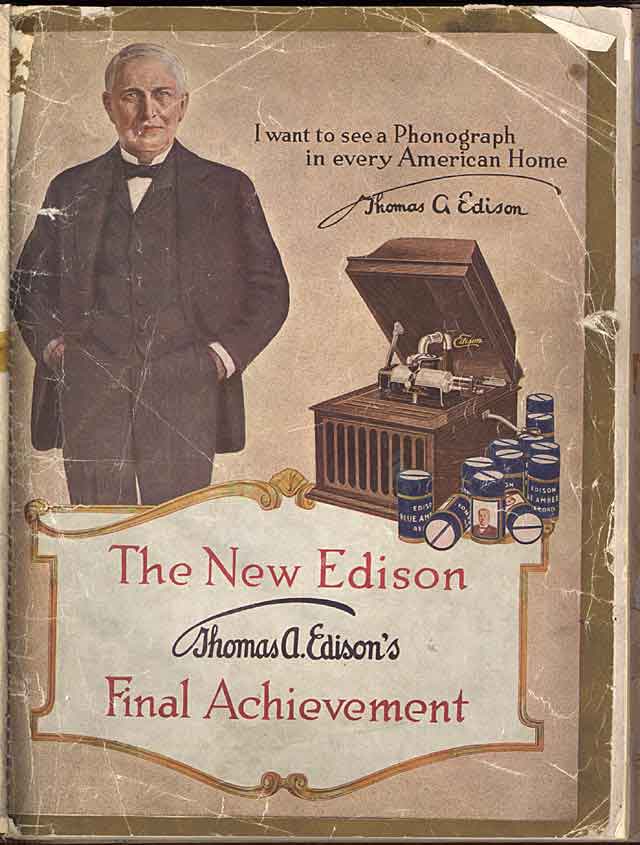Today’s Wall Street Journal “Sightings” column is devoted to the Library of Congress’ National Recording Preservation Plan, a document that will be consuming interest to anybody who cares about old records. Here’s an excerpt.
* * *
What is a library? Until fairly recently, the answer to that question was simple: It’s a storehouse for pieces of the past, reduced to words printed on paper. The fact that books are increasingly “printed” on something other than paper doesn’t change the fundamental purpose of libraries. They are our collective memory. Without books and the libraries that preserve them, we wouldn’t know what happened in the past, and we couldn’t use that knowledge to shape the future.
 Fortunately for posterity, a well-made book isn’t hard to preserve. But in 1877, Thomas Edison invented a new way to preserve pieces of the past. He called it the phonograph, and it took a long time for librarians to figure out that the echoes of speech and music that Edison and his successors etched on discs were as important a part of our collective memory as the words that Johannes Gutenberg and his successors printed on paper.
Fortunately for posterity, a well-made book isn’t hard to preserve. But in 1877, Thomas Edison invented a new way to preserve pieces of the past. He called it the phonograph, and it took a long time for librarians to figure out that the echoes of speech and music that Edison and his successors etched on discs were as important a part of our collective memory as the words that Johannes Gutenberg and his successors printed on paper.
Nowadays most people understand the historical significance of recorded sound, and libraries around the world are preserving as much of it as possible. But recording technology has evolved much faster than did printing technology–so fast, in fact, that librarians can’t keep up with it. It’s hard enough to preserve a wax cylinder originally cut in 1900, but how do you preserve an mp3 file? Might it fade over time? And will anybody still know how to play it a quarter-century from now?…
The Library of Congress recently issued a 78-page document called “The Library of Congress National Recording Preservation Plan” whose purpose is to ensure that our descendants will be able to listen to the sounds of the past long after we’re dead and gone. It contains 32 recommendations, most of which, I suspect, will be filed and forgotten. Given the present state of the economy, I can’t imagine that anyone on Capitol Hill sees the preservation of sound recordings as a top priority. But Congress can do one important thing that will help to save our sonic history without costing a cent: We need to straighten out America’s confused copyright laws, and we need to do it now….
* * *
Read the whole thing here.
Terry Teachout on the arts in New York City
An ArtsJournal Blog
